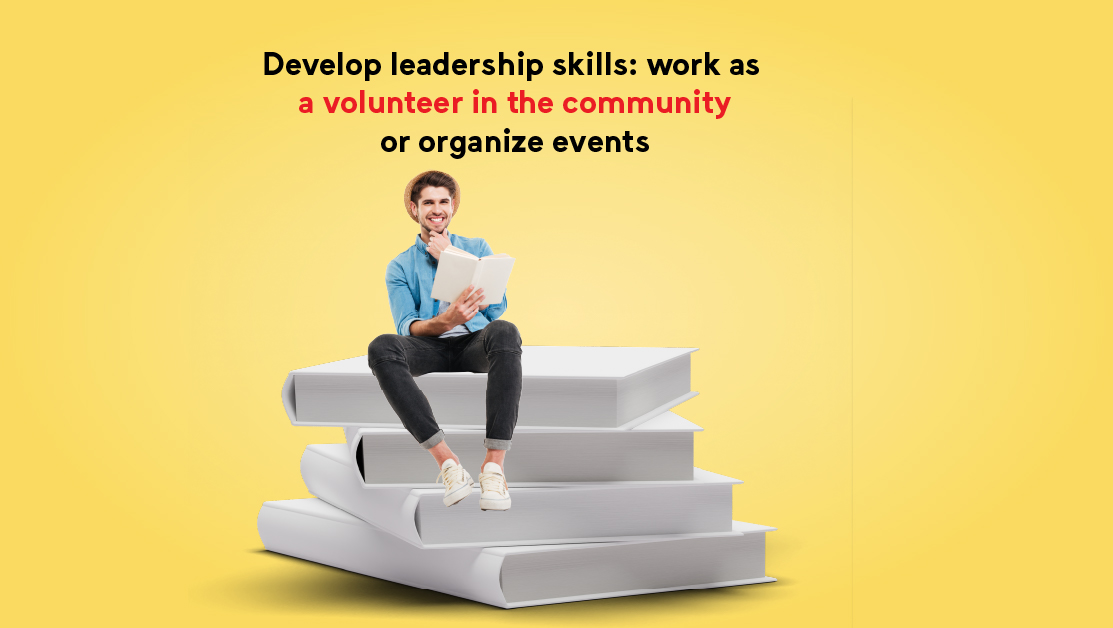
As parents, we often find ourselves wondering how to equip our children with the essential life skills they need to succeed in the future. One of the most valuable skills we can nurture in our children is leadership. The ability to lead not only contributes to personal growth but also prepares them for the challenges and responsibilities that lie ahead. Two effective ways to develop leadership skills in young individuals are through volunteering in the community and organizing events. In this article, we will delve into the importance of developing leadership skills and how volunteering and event organization can be instrumental in this journey.
The Importance of Developing Leadership Skills
Leadership is not merely about holding a position of authority; it encompasses a range of qualities that enable individuals to guide, inspire, and influence others. In today’s fast-paced and interconnected world, leadership skills are more crucial than ever. They empower individuals to navigate complex situations, make informed decisions, and collaborate effectively. Whether it’s in academic settings, professional environments, or personal relationships, leadership skills are highly transferable and valuable.
As parents, we have the privilege and responsibility to foster these skills in our children. By doing so, we prepare them to be proactive contributors to society, adept problem solvers, and compassionate individuals who can lead with empathy.
The Importance of Volunteering
Volunteering offers a unique platform for individuals to develop leadership skills in a practical and meaningful way. When young individuals engage in volunteer work, they step into roles that require them to take initiative, communicate effectively, and collaborate with diverse groups of people. These experiences not only build confidence but also help them learn how to motivate others and manage tasks responsibly.
Develop Communication Skills: Effective communication is at the core of leadership. Volunteers often find themselves interacting with different people, from peers to seniors to beneficiaries. This exposure helps them to develop communication skills, learn active listening, and adapt their communication style to various situations. As they relay their ideas, concerns, and plans to others, they learn to articulate their thoughts clearly and persuasively.
Cooperation and Collective Effort: Leaders rarely work in isolation; they thrive in collaborative environments. Volunteering provides opportunities to work in teams, where individuals must navigate group dynamics, contribute their expertise, and coordinate efforts to achieve common goals. Through this, they gain insights into the art of compromise, conflict resolution, and motivating a team towards success.
Critical Thinking and Choice: Volunteering often presents unforeseen challenges that demand quick thinking and effective decision-making. As volunteers encounter these situations, they learn to analyze problems, consider potential solutions, and make choices based on the best interests of the community or cause they are serving. These experiences hone their critical thinking skills and help them make sound judgments under pressure.
Organizing Events for Leadership Development
Event organization is another avenue that offers tremendous opportunities for developing leadership skills. When young individuals take charge of planning and executing events, they step into roles that require them to lead, delegate, and coordinate various aspects.
Task Coordination and Oversight: Event organization is essentially a mini project, requiring careful planning and execution. From setting objectives to creating timelines, and allocating resources to managing budgets, individuals learn how to manage projects from start to finish. These experiences instill a sense of responsibility and ownership, essential qualities of effective leaders.
Flexibility: Events don’t always go as planned. Unexpected challenges can arise, requiring individuals to think on their feet and adapt quickly. These situations teach them resilience, flexibility, and the ability to find creative solutions even in the face of adversity.
Negotiation and Networking: Successful events often involve collaborating with sponsors, vendors, and other stakeholders. This offers young individuals the chance to develop negotiation skills and build a network of contacts. Negotiating contracts, securing partnerships, and maintaining relationships are all valuable skills that leaders utilize in various aspects of their lives.
Nurturing Leadership Skills in Your Children
As parents, you play a vital role in nurturing your children’s leadership skills. Encouraging them to volunteer and organize events can have a profound impact on their personal and professional growth.
Lead by Example: Children often learn by observing the behavior of adults around them. If you engage in volunteer work or take on leadership roles in your community, you set a powerful example for your children to follow. They will understand that leadership is not just a theoretical concept but a practical way to make positive change.
Encourage Exploration: Encourage your children to explore their interests and passions when choosing volunteer opportunities or event themes. When they are passionate about a cause or project, they are more likely to invest time and effort into it, which in turn enhances their leadership development.
Provide Guidance: While giving them autonomy to lead, provide guidance and support when needed. Discuss their experiences, challenges, and successes, offering insights that can help them grow as leaders. Encourage open communication and create a safe space for them to ask questions and seek advice.
Celebrate Achievements: Recognize and celebrate their achievements as leaders. Whether it’s successfully organizing an event, initiating a community project, or making a positive impact through volunteering, acknowledging their efforts boosts their confidence and motivates them to continue their leadership journey.
Enhancing Leadership Skills: The Role of Specialized Courses
In the quest to develop strong leadership skills in young individuals, various avenues are available, and one of the most impactful is specialized courses. These courses offer structured learning experiences that focus on cultivating essential qualities and abilities in budding leaders. One such notable program is the young leader course offered by Elmadrasah.com. Let’s delve into how courses like this can significantly contribute to the development of leadership skills.
The Significance of Specialized Courses
While volunteering and event organization are invaluable methods to develop leadership skills, specialized courses provide a structured and guided approach to learning. These courses are designed by experts who understand the nuances of leadership development and can provide a comprehensive curriculum tailored to the needs of young individuals.
The Young Leader Course by Elmadrasah.com
Elmadrasah.com has introduced a course specifically geared towards nurturing leadership skills in young individuals. The young leader course is an online program that offers a range of modules designed to empower participants with the skills, knowledge, and mindset required to become effective leaders.
Key Focus Areas of the Course
Self-Discovery and Awareness: The course often begins with sessions that encourage participants to explore their strengths, weaknesses, values, and aspirations. Self-awareness is a cornerstone of effective leadership, as it enables individuals to understand their motivations and areas for growth.
Communicating with Others: The course aims to develop communication skills, focusing on both verbal and nonverbal aspects. Effective communication enables leaders to convey their ideas clearly, motivate their team, and build meaningful relationships.
Problem Solving and Decision Making: Through interactive scenarios and case studies, the course hones participants’ problem-solving and decision-making abilities. Leaders often face complex challenges, and having the capacity to analyze situations and make informed decisions is crucial.
Team Dynamics and Collaboration: The course emphasizes the art of collaboration and teamwork. Participants learn how to work effectively in groups, leverage diverse perspectives, and manage conflicts constructively. These skills are essential for leading diverse teams towards common goals.
Project Management: Just as in real-life leadership roles, the course provides insights into project management. Participants learn to set objectives, create timelines, allocate resources, and track progress skills that are indispensable for effective leadership in any domain.
Adaptability and Resilience: In an ever-changing world, adaptability is a key trait of successful leaders. The course equips participants with strategies to navigate change, remain resilient in the face of challenges, and lead their teams through uncertain times.
Ethical Leadership: The course delves into the importance of ethics and integrity in leadership. Participants explore real-world scenarios where ethical decision-making is crucial and learn how to lead with a strong moral compass.
Interactive Learning Environment
One of the advantages of the Young Leader course is its interactive learning environment. Participants engage in discussions, group activities, and simulations that mirror real-world leadership scenarios. This experiential learning approach allows participants to apply theoretical concepts in practical situations, enhancing their ability to think on their feet and make informed choices.
Mentorship and Guidance
Elmadrasah.com course includes mentorship and guidance from experienced leaders. Participants have the opportunity to interact with mentors who provide personalized feedback, answer questions, and offer insights based on their own leadership journeys. This mentorship component adds a valuable layer of real-world experience to the learning process.
Integrated volunteering: promoting participation and organizing memorable events
It’s important to note that specialized courses like the Young Leader offered by Elmadrasah.com do not replace the importance of volunteering or event organization. Instead, they complement these hands-on experiences by providing a structured educational framework. The combination of practical involvement and structured learning creates a well-rounded approach to leadership development.
Parental Role and Support
As parents, your role in supporting your children’s participation in specialized courses is crucial. Encourage them to explore opportunities like the young leader course and provide them with the resources they need to succeed. Discuss their learning experiences, help them reflect on their progress, and offer guidance as they apply their newfound knowledge and skills in real-world situations.
While volunteering and event organization remain powerful methods to develop leadership skills, specialized courses like Elmadrasah.com’s young leader program offer a focused and structured approach. These courses provide participants with valuable insights, tools, and mentorship to become effective and ethical leaders. By combining practical experiences with structured learning, young individuals can truly flourish as leaders, equipped with the skills needed to navigate an increasingly complex and interconnected world.
Conclusion
Developing leadership skills in your children is a powerful investment in their future. Volunteering and event organizations offer hands-on experiences that nurture communication, teamwork, problem-solving, and decision-making abilities. As parents, you have the privilege of guiding them on this journey, setting the foundation for them to become confident, empathetic, and effective leaders. So, encourage them to take that step into leadership roles, knowing that the skills they gain will not only serve them well but also contribute to a better and brighter future for everyone.















